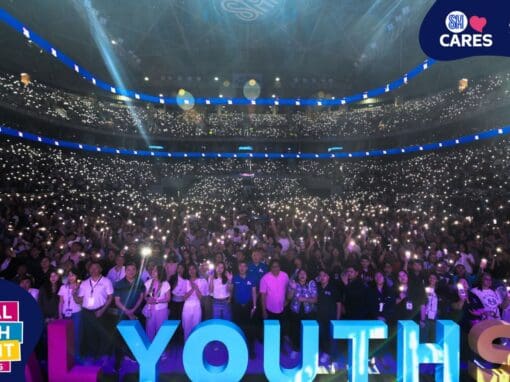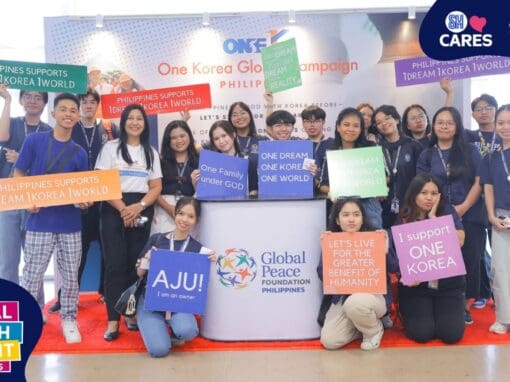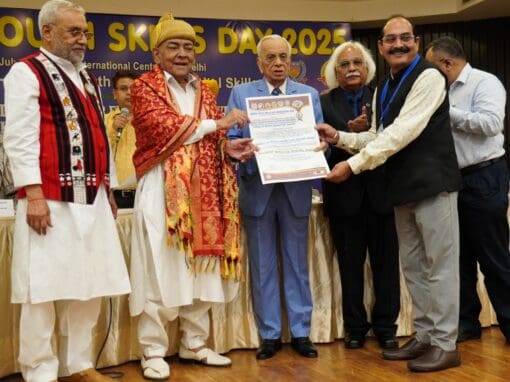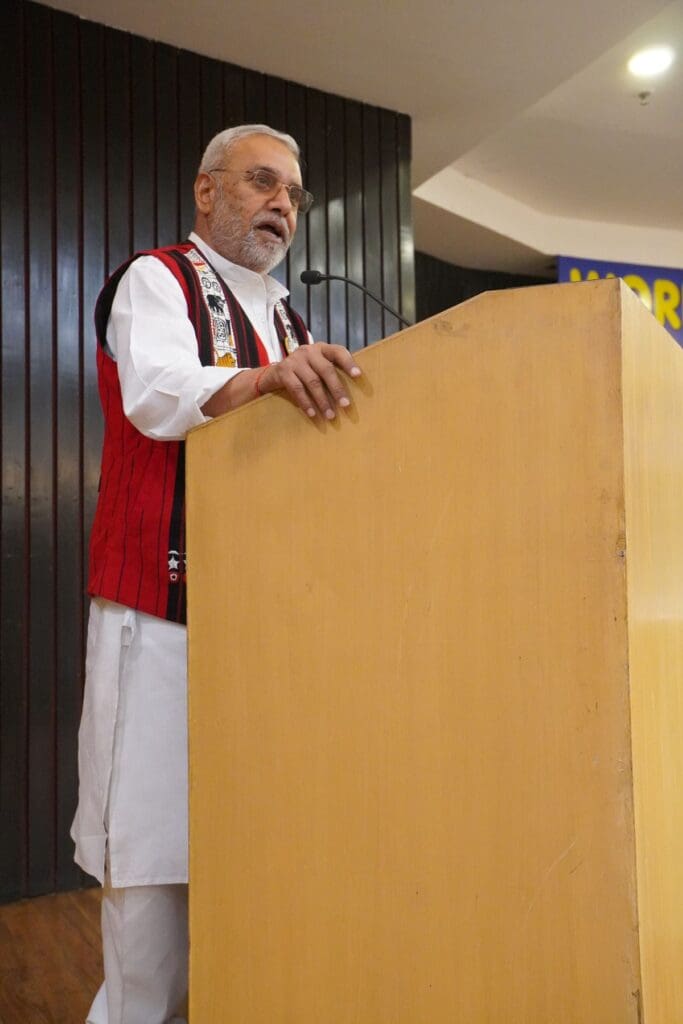
Dr. Markandey Rai, Chairman of GPF India, speaks to young leaders during a forum in India.
In a world driven by rapid technological evolution and environmental challenges, fostering skills in youth is not merely a necessity—it is an imperative. On World Youth Skills Day 2025, celebrated with energy and purpose at the India International Centre, New Delhi, educators, policymakers, innovators, and changemakers united to reaffirm this shared responsibility. With the theme of “Empowering Youth for a Skilled and Sustainable Future,” the event marked a pivotal step in reimagining education and skill development for an inclusive, resilient, and green India.
Jointly organized by the World Academy of Higher Education and Development (W-AHEAD), the National Institute of Skilling, and the Global Peace Foundation (GPF) India, the day-long celebration brought together a confluence of voices—from government and academia to industry and civil society. These voices echoed a unified message: that skilling youth is not only
about employability but about preparing a generation to be leaders, peacebuilders, and change agents in a rapidly changing world.
Skilling for Viksit Bharat @2047: A National Aspiration
The event commenced with a traditional lighting of the Lamp of Knowledge, setting the tone for a day focused on enlightenment and engagement. The inaugural address by Dr. V.K. Saraswat, Hon’ble Member, NITI Aayog, laid out India’s bold vision for Viksit Bharat @2047, calling for transformative curriculum reform in technical education, seamless integration of Sustainable Development Goals (SDGs), and the embedding of AI and climate resilience into national skilling frameworks.
Echoing this, Prof. T.G. Sitharam, Chairman of AICTE, launched a landmark W-AHEAD publication titled “Use of Skills for Sustainable Development: 2015–2025.” He emphasized the need for higher education to adopt digital twin technologies, data-driven innovation, and structural engineering that aligns with global sustainability goals. This holistic approach was reinforced by speakers like Dr. V. Suresh and Dr. H.R.P. Yadav, who advocated for the inclusion of green technologies, circular economy practices, and digital literacy in the curriculum, underlining that the future belongs to those equipped with future-ready skills.
A Call for Innovation, Inclusion, and Mental Well-being
In his address, Dr. Markandey Rai, Chairman of GPF India, raised critical concerns about the gaps in India’s current youth policy and skilling infrastructure. While celebrating the successes of initiatives like Pradhan Mantri Kaushal Vikas Yojana (PMKVY), which has trained over 1.63 crore youth, Dr. Rai also cited findings from the Parak Report, which revealed worrying trends: outdated technical curricula, lack of student counselling, and rising emotional burnout. He stressed that skilling must not be confined to technical competence but should also cultivate mental health, emotional intelligence, citizenship, and peacebuilding.
“Empowering youth with purpose-driven skills is essential to building an inclusive and sustainable India,” Dr. Rai stated, reminding all present that national development is not a solitary journey—it is a collective stride forward.
Adding depth to the emotional landscape of youth issues, MAAster G, a motivational speaker, delivered a heartfelt talk on emotional resilience and mental health challenges faced by the younger generation. He observed how many youth silently battle depletion and stress, often turning to self-medication. His call to reclaim “real intelligence—rooted in empathy and reflection” offered a powerful reminder that skilling must encompass both the mind and the heart.
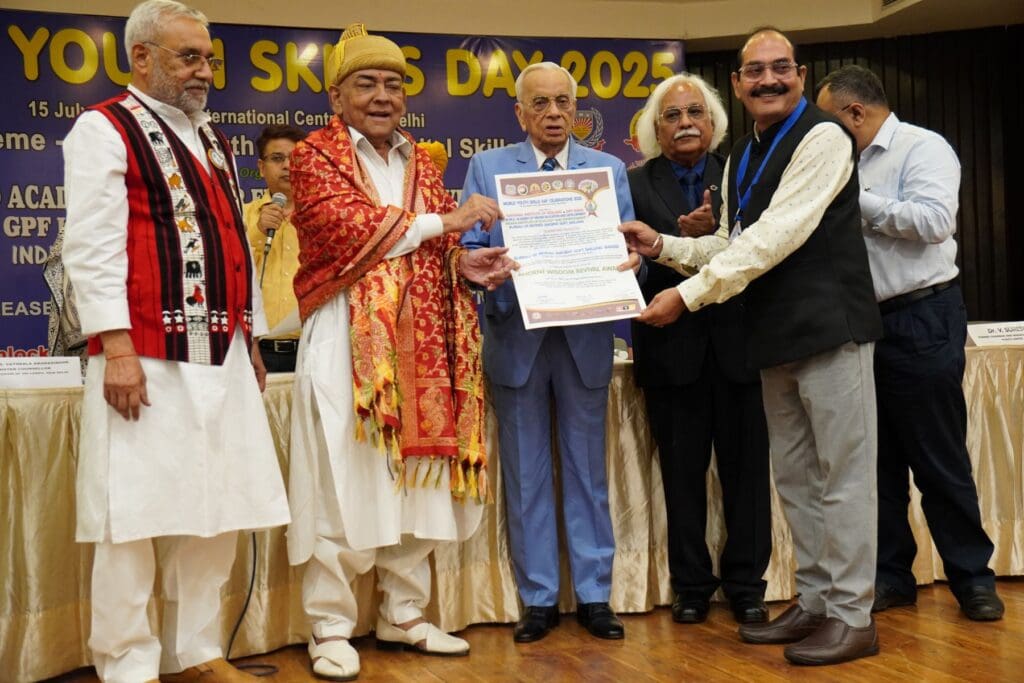
Leaders in India celebrate World Youth Skills Day 2025.
Digital Innovation and AI for Social Good
As India advances toward a digital-first future, Dr. Subi Chaturvedi, Senior Vice President at InMobi, spotlighted how AI and inclusive digital innovation can transform the learning ecosystem. Presenting Glance AI as a case study, she explored the potential of curiosity-driven learning, AI-powered personalisation, and youth-led tech innovation for social good. Importantly, she stressed the criticality of access and infrastructure, particularly in underserved regions, to ensure equitable digital progress.
The global perspective was further expanded by Prof. Nagendra K. Kaushik from Kwangwoon University, South Korea, who emphasized science diplomacy, student exchange programs, and cross-border research collaborations as means of fostering not only academic excellence but also peace and mutual understanding. This intersection of technology, policy, and peacebuilding was one of the day’s most compelling takeaways.
Women Leading the Way
A special moment in the program was the recital of a poem on women’s empowerment, penned by Dr. Priyaranjan Trivedi and performed by women leaders from GPF India. This creative segment celebrated the integral role of women in nation-building and highlighted the importance of ensuring that skilling initiatives are gender-inclusive and empowering at every level.
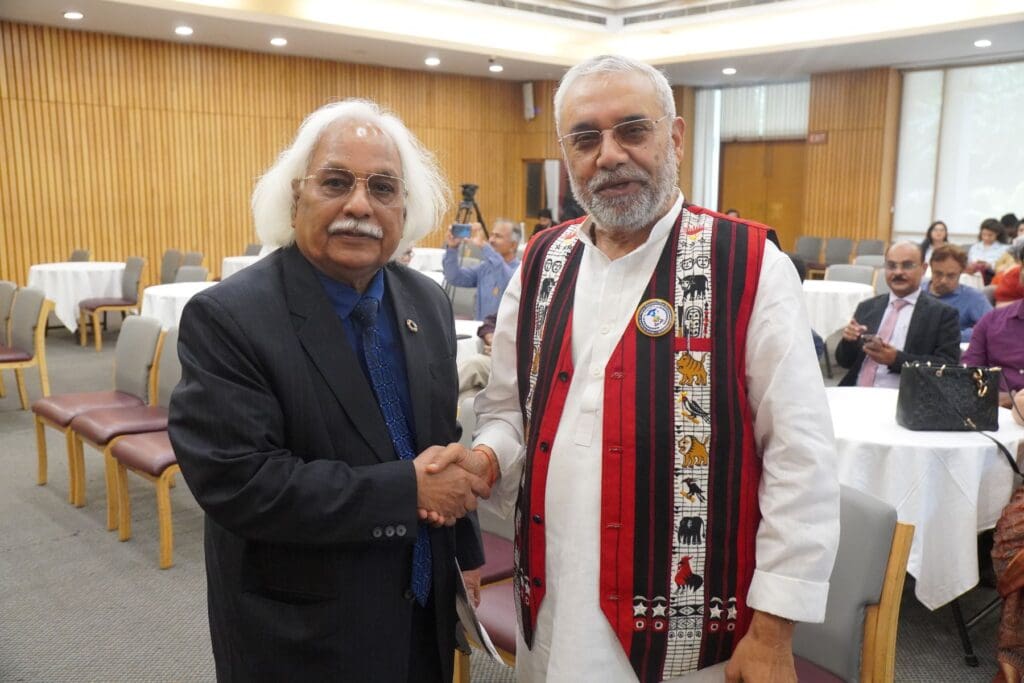
Leaders in India celebrate World Youth Skills Day 2025.
Commitment to Action: The New Delhi Declaration
The day concluded with the release of the New Delhi Declaration on Youth Skills Development, a visionary document emphasizing collaboration among institutions, promotion of entrepreneurship, and integration of mental health and ethical AI use in education policy. The declaration serves as a roadmap for educators, institutions, and policymakers to shape an agile and resilient skill ecosystem in India.
In recognition of outstanding contributions, faculty members, researchers, and student innovators from institutions such as Bharati College, Maitreyi College, PGDAV College, and Jesus and Mary College were felicitated. These youth role models exemplify the transformative power of learning when aligned with purpose and passion.
A Path Forward
As India stands on the cusp of transformative change, it is clear that youth will be the architects of our sustainable future. The World Youth Skills Day 2025 celebration in New Delhi was not just an event—it was a movement. A movement that calls for innovation with integrity, progress with purpose, and growth with empathy.
At Global Peace Foundation India, we remain committed to nurturing this vision. By fostering a culture of lifelong learning, ethical leadership, peacebuilding, and inclusive development, we believe that skilling youth today is the surest investment in a peaceful, prosperous, and sustainable tomorrow.
Let us continue to build a nation—and a world—where every young person has the tools, the voice, and the opportunity to thrive.


